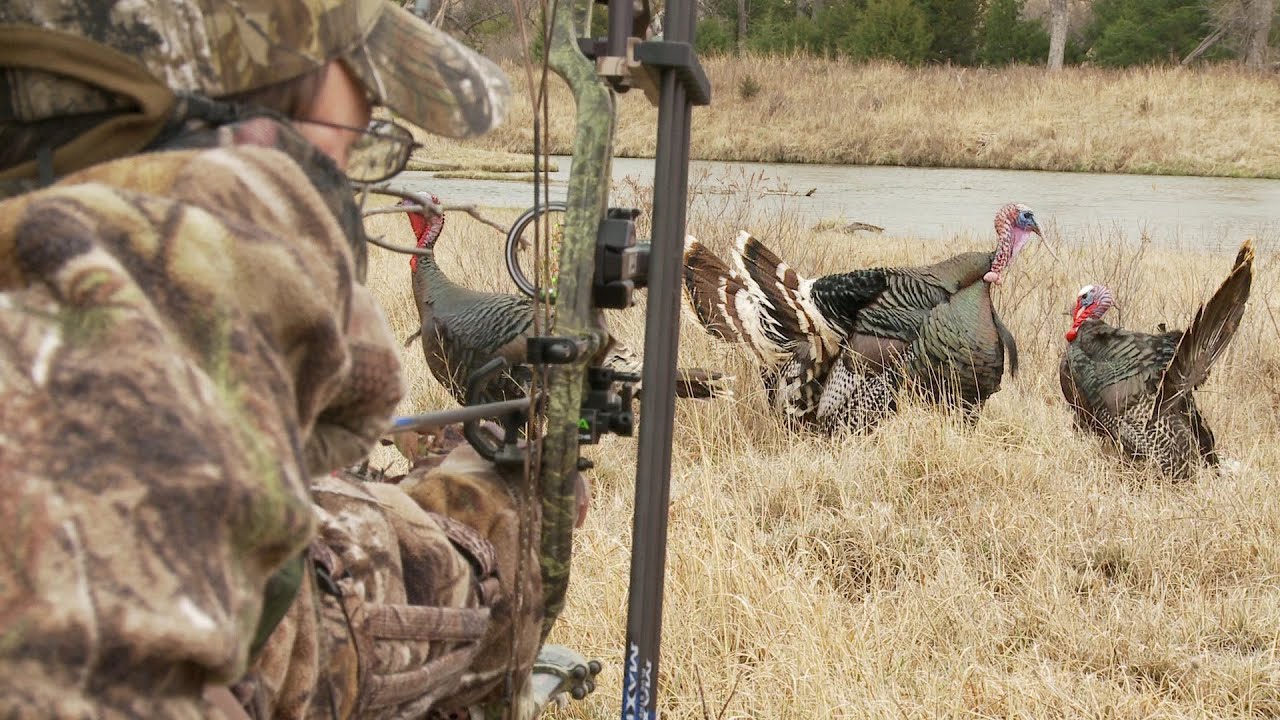Turkey hunting holds a special place in the outdoor traditions of many hunters, offering a unique blend of skill, patience, and deep connection with nature. This longstanding tradition isn’t just about the hunt; it’s also about immersing oneself in the natural world and respecting the delicate balance of ecosystems. However, the privilege to hunt also comes with responsibilities, especially regarding land stewardship, conservation, and respect for wildlife. Hunters who adhere to ethical practices not only contribute to the sustainability of turkey populations but also set a positive example within the hunting community. Practicing hunting etiquette is crucial to preserving the experience for future generations and ensuring harmony with the environment.
In this article, we’ll explore respectful practices and strategies that can enhance your turkey hunting experience while promoting responsible hunting ethics and helping foster a sustainable future.
The Importance of Respect in Turkey Hunting
Respect is foundational to all aspects of turkey hunting, extending from the land you hunt on to the animals pursued. Ethical hunting practices hinge on this respect, as hunters recognize that they are guests in nature’s domain. Hunting on private land, for example, requires careful adherence to any specific rules or guidelines that landowners may have set to ensure that their land is used responsibly. Showing gratitude and following these rules fosters trust between hunters and landowners, allowing for continued access to these valuable hunting grounds. In public hunting areas, etiquette becomes even more essential, as hunters must work collectively to maintain safety, reduce crowding, and ensure everyone has a positive experience.
Respecting wildlife is equally important. Turkey hunting is about embracing the challenge, tradition, and skill involved—not merely focusing on the outcome. Hunters honor the animal they pursue by hunting ethically and adhering to fair-chase principles, avoiding any unfair advantage. Responsible turkey hunting means recognizing the value of each element within the ecosystem, from the birds themselves to the delicate habitat that supports them. Every ethical decision in the field reflects an understanding that a healthy ecosystem, conserved and respected, is the foundation for sustainable hunting opportunities.
Land Stewardship in Turkey Hunting
Land stewardship is a core part of hunting ethics. Whether you’re hunting on private or public land, it’s essential to minimize your environmental footprint. One of the primary ways to show respect for the land is by practicing “leave no trace” principles. Turkey hunters should clean up after themselves, picking up any trash or equipment remnants, and should avoid leaving anything that could disturb the environment or the wildlife that inhabits it.
Land preservation also includes being mindful of paths and trails. Creating new paths or straying off designated trails can lead to habitat destruction and erosion. In sensitive areas, such as wetlands or marshes, avoiding disruption is even more critical. By sticking to established paths and using them carefully, hunters help maintain the landscape for future hunting opportunities and for other outdoor enthusiasts.
In addition, turkey hunters should respect property boundaries, especially when hunting in areas where public and private lands intersect. Crossing into private land without permission not only violates hunting regulations but also disrespects the rights of landowners. It’s essential to secure permission before setting foot on any private property, even if the boundary isn’t clearly marked.
Ethical Turkey Hunting Practices
Respect for wildlife is fundamental in all hunting practices. Ethical turkey hunting means understanding the behaviors and habits of turkeys, as well as the principles of fair chase. Pursuing turkeys responsibly involves giving the animal a fair chance and avoiding any tactics that may lead to needless suffering or overharvesting.
During spring, male turkeys are often targeted due to the season’s breeding dynamics. Hunters must be aware of their impact on the population and avoid taking more than they need. Overharvesting can disrupt local turkey populations, leading to imbalances and reduced hunting opportunities in subsequent seasons. Turkey hunting is about sustainability and conservation, ensuring future generations can enjoy the thrill of the hunt.
Hunters should also respect the natural behavior of turkeys and avoid disturbing them unnecessarily. Avoiding excessive calling or harassment of turkeys, especially hens during nesting season, helps ensure that turkey populations can remain stable and healthy. By practicing ethical hunting, hunters can take part in an age-old tradition that respects the animal and aligns with principles of conservation.
Navigating Hunting Etiquette with Other Hunters
Turkey hunting often brings many hunters to the same public lands, especially during peak seasons. Practicing etiquette with other hunters not only ensures a safe hunting experience but also enhances everyone’s enjoyment. Avoid crowding or competing with others for the same hunting spot. Give ample space to other hunters, which helps reduce any interference and fosters a more respectful hunting environment.
When encountering other hunters, it’s important to communicate clearly and politely. For instance, if you see another hunter set up in an area you planned to hunt, respect their spot and find a different location. Similarly, if another hunter approaches you, a quick, friendly gesture or word can prevent any misunderstandings.
Noise discipline is also an essential aspect of hunting etiquette. Minimizing noise, especially early in the morning, can reduce disturbances and improve the chances of a successful hunt. Excessive noise not only disturbs other hunters but can also drive turkeys away from the area, reducing everyone’s chances of a good hunt.
If you’re hunting in Sinton, Texas, or any other popular location, being mindful of shared spaces and crowded areas is particularly important. Cooperation and courteous behavior with others in the field can significantly enhance everyone’s experience and preserve the integrity of the turkey hunting community.
Embracing Sustainable Practices in Turkey Hunting
Sustainable hunting practices are essential to maintaining turkey populations and their habitats. This means taking only what you need, minimizing environmental impact, and actively participating in conservation efforts. Turkey hunters can make a difference by being conscientious about their impact, from the ammunition they use to the frequency with which they hunt in a particular area.
One effective sustainable practice is to rotate hunting locations to avoid putting too much pressure on a single area. Overhunting in one location can lead to decreased turkey populations and reduce hunting opportunities. By rotating spots, hunters can help maintain a balance and give local turkey populations time to recover.
Hunters can also participate in habitat restoration projects to directly support turkey habitats. By planting native vegetation, maintaining food sources, and preserving water sources, hunters contribute to creating environments where turkeys and other wildlife can thrive. For those hunting in areas like Mission, Texas, being aware of local conservation efforts can be beneficial. Engaging with these projects, whether through financial contributions or volunteer work, helps ensure hunting remains sustainable and preserves natural areas for future generations.
Final Thoughts
Turkey hunting etiquette is about more than just following rules; it’s about fostering respect for the land, wildlife, and other hunters. By embracing sustainable practices, adhering to regulations, and acting as stewards of the land, hunters play a vital role in preserving turkey hunting for future generations. Responsible hunters demonstrate that hunting is an honorable pursuit, one that requires dedication to conservation and a deep respect for nature.
As turkey hunters, the actions taken today determine the future of the sport and the health of the ecosystems that support it. By embodying respect and responsibility, hunters can continue to enjoy the thrill and tradition of turkey hunting while leaving a positive legacy for those who come after.




